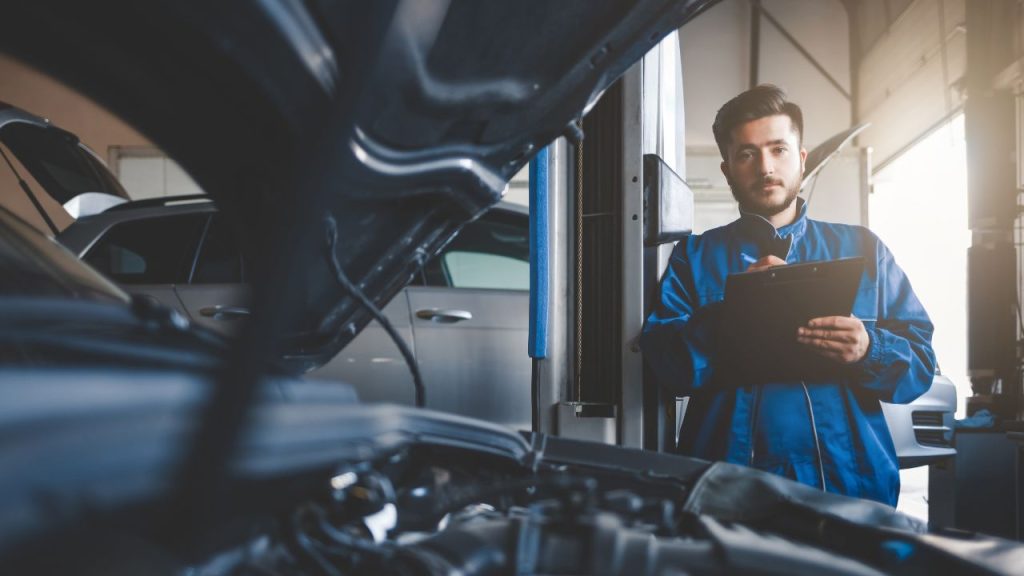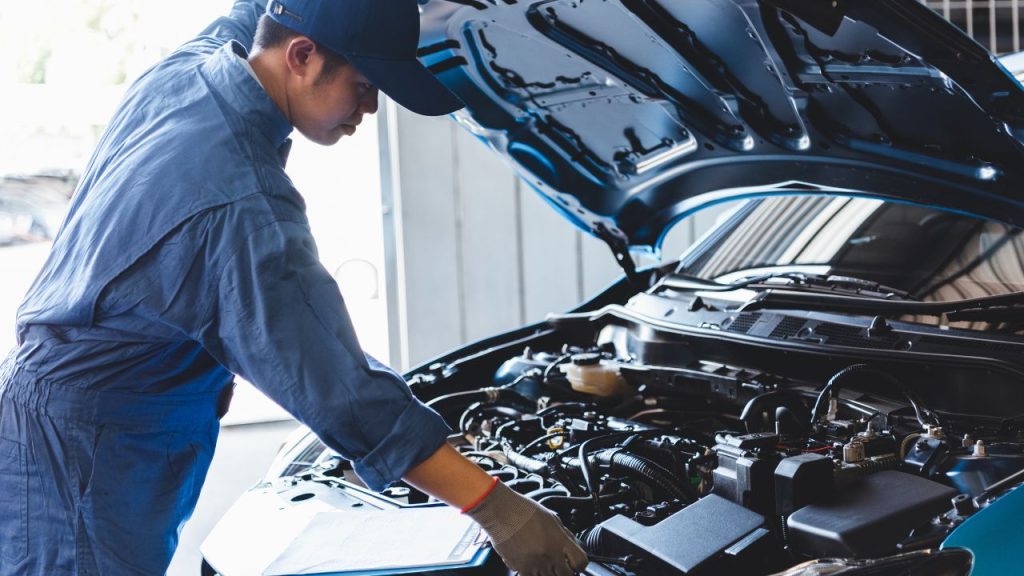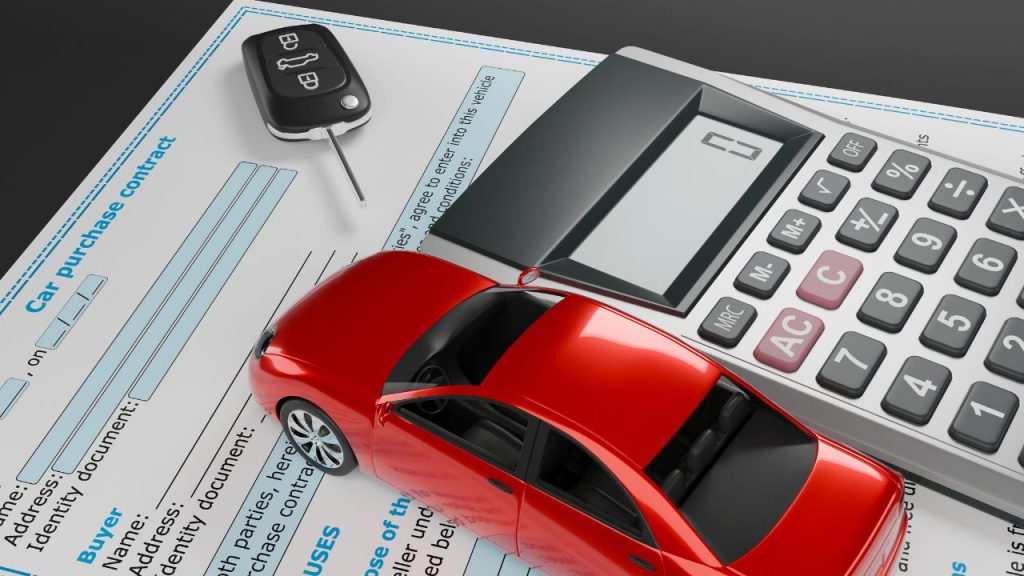Updated October 2025
Life doesn’t always line up neatly with your National Car Test (NCT) appointment. Work shifts, travel, or family commitments can easily clash with your booking. The good news is that you don’t actually have to attend the test yourself. Yes, someone else can bring your car for the NCT in Ireland, whether it’s a family member, a friend, or even a professional service.
The important part is making sure they have the right documents and ID, the car is prepared, and you’ve briefed them on what to expect at the test centre. In this guide, we’ll cover exactly how it works, the rules around it, and some practical tips that will save you headaches.
Who Is Allowed to Bring Your Car?
The NCTS doesn’t put restrictions on who can present your car. Their main concern is that the vehicle is insured, legal, and properly documented
Friends and Family
The most common option is to ask a relative or a friend to drive your car to the centre. As long as they are insured to drive it, there is no problem. Many people use this option if they can’t take time off work or if they’re away on the day of their booking.
Colleagues
In some cases, colleagues might step in, particularly if you live and work close to an NCT centre. Again, insurance is the key factor.
Garages and Motor Services
Some garages and mechanics now offer an “NCT collection and presentation” service. They’ll pick up your car, take it for its test, and return it with the results. This option can be very convenient, but always check that they have motor trade insurance in place before handing over your keys.
What Paperwork and ID Are Needed?
Whoever brings your car will need to present a Vehicle Registration Certificate (VRC or VLC). This is your car’s logbook, and it’s the single most important piece of paperwork for the test.
Driving Licence or Photo ID
The person attending should also bring a form of photo ID, ideally a driving licence. This isn’t optional if you want the certificate on the day. Without ID, the car can still be tested, but the NCTS won’t hand over the cert until the registered owner or another authorised person returns with proper ID.
Booking Confirmation
It’s wise to give the presenter the appointment confirmation, including the time, date, centre, and booking reference.
Payment
If the test fee hasn’t already been paid online, make sure the person has a debit or credit card to settle it. Cash is accepted too, but not American Express.
Authorisation Note
While not strictly required, writing a short letter of authorisation is good practice. This makes life easier if staff have any questions about why someone else is presenting the vehicle.
How to Prepare the Car Beforehand
Even if you’re not the one taking the car to the test, it’s your responsibility to make sure it’s ready. The vast majority of failures happen because of issues that could have been fixed at home or at a local garage before the test.

Lights and Visibility
Check that every bulb works, including headlights, brake lights, and indicators. Clean the lenses so they’re clear, and adjust headlamp aim if it looks off.
Tyres and Wheels
Tyres must have at least 1.6mm of tread across three-quarters of the tyre’s width. Look for cracks, bulges, or other damage. Remove any hubcaps or wheel trims that cover the nuts, because testers need to see them.
Brakes and Suspension
Make sure the brakes feel responsive and listen out for grinding or squealing. These are signs of worn pads or discs. Suspension issues can also cause failures, so if the car feels bouncy or uneven, get it checked in advance.
Interior and Boot
Empty out the boot, unlock the glovebox, and clear the cabin of unnecessary clutter. NCT testers need access to the OBD port and seatbelts, so make sure everything is easy to reach.
Child Seats
You don’t need to remove child seats. If they remain fitted, the tester will check they’re secure.
Engine and Fluids
Top up washer fluid, oil, coolant, and brake fluid. Drive the car for at least 15 minutes before arriving so the engine is warm — this helps with emissions testing.
What to Expect at the NCT Centre
When the person arrives at the centre, they’ll check in with the booking reference, logbook, and ID. The tester might ask about recent repairs, known issues, or where the locking wheel nut is located if applicable.
The car is then inspected inside, outside, and underneath using specialist equipment. The test usually takes 30–40 minutes. Once finished, the presenter will receive the NCT report, and if the car passes, the certificate and windscreen disc too.
If you’re not there, ask the person to send you a photo of the report straight away. This ensures you know exactly what the outcome was, particularly if advisory notes or failures are recorded

Fees, Retests, and Cancellations
The standard NCT test costs €60. If your car fails and needs a re-test, the cost depends on what has to be rechecked:
- €40 if testing equipment is needed (for example, emissions or brakes)
- Free if it’s just a visual inspection (for example, tyres or wipers)
If you need to cancel or reschedule, make sure you do it at least five working days in advance. Otherwise, you’ll face a cancellation fee of €24 for a full test or €16 for a re-test.
What If the Car Fails?
There are four possible outcomes:
- Pass: You’ll receive the certificate and disc.
- Pass Advisory: The car passes but the tester highlights minor issues to keep an eye on.
- Fail: The report lists the reasons, and you’ll need to fix them and book a re-test.
- Fail Dangerous: This is the serious one. If your car is deemed unsafe, it will get a “Failed Dangerous” sticker and cannot be driven away. In that case, you’ll need to tow it to a garage for repairs before re-presenting it for inspection.
NCT Frequency and Exemptions
Testing frequency depends on your car’s age:
- First test at 4 years old
- Every 2 years until the car is 10 years old
- Annually after year 10
- Cars aged 30–39: every 2 years
- Cars aged 40+: exempt from NCT (unless used commercially)
The Law Around NCT
It’s worth remembering that driving without a valid NCT is a criminal offence. If caught, you risk:
- A fine of up to €2,500
- 5 penalty points
- Up to 3 months in prison
- Garda powers to seize your vehicle
Even if you’re only a week out of date, you’re still technically breaking the law. If your NCT has expired, don’t drive the car until it’s tested. If necessary, arrange for a garage or recovery service to bring it in.
A Handy Checklist for Whoever’s Going
Here’s a quick recap of what you should give to the person bringing your car:
- The VRC/VLC logbook
- Their own driving licence (ID)
- The booking reference and payment method
- A short authorisation note
- Car fully prepared (lights, tyres, fluids, brakes, and engine warmed)
- Locking wheel nut key if applicable
Final Thoughts
So, can someone else bring your car for the NCT? Absolutely. Whether it’s a family member, a trusted friend, or even your local garage, the NCT doesn’t care who drives the car through the gates. What matters is that the car is safe, insured, and properly documented.
If you prepare the car, hand over the logbook, and give clear instructions, the test will go just as smoothly as if you’d gone yourself. At the end of the day, the NCT is about road safety, not paperwork for its own sake — so whoever brings the car, the important thing is that it passes.
FAQs: Can Someone Else Bring My Car for NCT?
▶ Can someone else bring my car for the NCT?
▶ What documents are needed if someone else brings my car?
▶ Does the person need to be insured to drive it to the NCT?
▶ Can a garage or mechanic present my car for the NCT?
▶ Do I need to remove the child seat before the test?
▶ How much does the NCT cost and what about re-tests?
▶ What happens if my car fails—or fails “Dangerous”?
▶ How often is the NCT due—and are classics exempt?

Ciaran is an automotive enthusiast with a Bachelor of Arts Honours degree in Creative Digital Media from MTU in Ireland and over three years of experience in digital marketing. His unique background combines a love for storytelling with a strong grasp of engaging content creation, making complex car topics relatable and easy to understand. Through years of managing this blog, Ciaran has expanded his automotive knowledge while helping everyday drivers gain new insights.
Passionate about demystifying the driving world, Ciaran focuses on simplifying car trends, tech updates, and practical driving tips. He believes that everyone should feel confident and informed behind the wheel, offering content that empowers readers to make smart, well-informed decisions.



